Free Flea Market
-When one door shuts, another opens-
Muromachi Community
Hinodeya Institute for Ecological Lifestyle
presented by Haruka Ozeki
on 24th September 2014, Kyoto
Outline
・Who is Haruka Ozeki?
・What is the Free Flea Market?
・Event Rules and Guidelines
・How did the “Free Flea” project evolve?
・Who are the key players?
・Spin-off projects
Haruka Ozeki
・Born 1979 in Libya when parents were there
・Also lived and studied in Nagasaki in Japan and Denmark.
・Currently resides in Kyoto
・Loves facilitating events to network local and international people
・Since April 2003, Project Co-ordinator managing various community-
group projects, working at Hinodeya Institute of EcologicalLifestyle
(Kyoto-based thinktank company)
・Passionate about resolution to ecologically-oriented community issues
What is the Free Flea Market?
・Everyone is a participant (No sales assistants or customers)
– People bring clothes and bags which they don’t use anymore,
put them onto the color-coded tables & racks
・Rainbow Room
– Clothes are classified by color, not by size
・Find, try, chat
– Everyone finds things they like, tries them on, then gets chatting
– Let each other know whether the clothes fit and suit
– Without mirrors, we have to trust each others’ eyes and sense of judgment.
It can be a lot of fun!
・Get a compliment, take it home
– When someone finds something they’d like to keep,
they have to strike up a conversation & get spoken approval
– for example – “That’s nice”;“It fits you perfectly!”
“You look great in that!”;“Your mum’ll love it!” etc.
・Free means free
– The Free Flea Market is sponsored by the Kyoto Municipal Council
and other bodies (event dependent).
– Participants need not pay with cash, but everyone pays through interacting,
by giving & receiving clothes and compliments
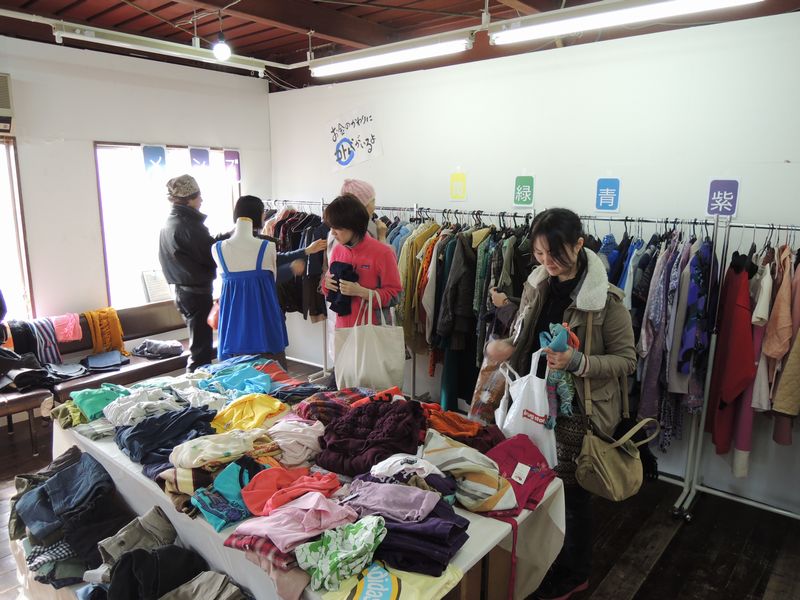
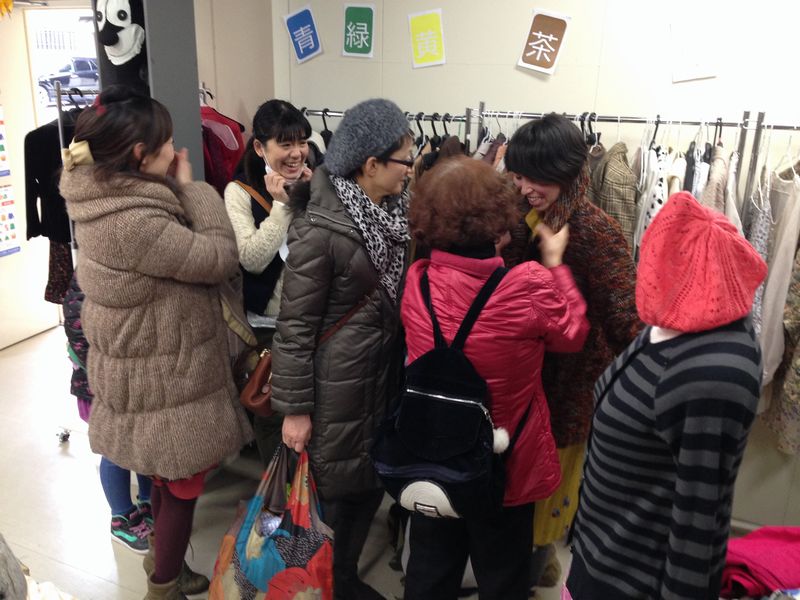
For Kids
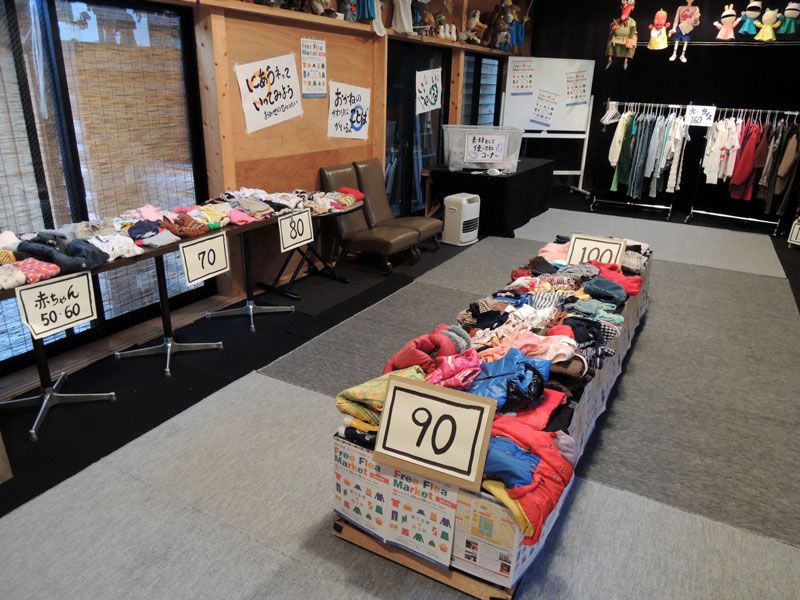
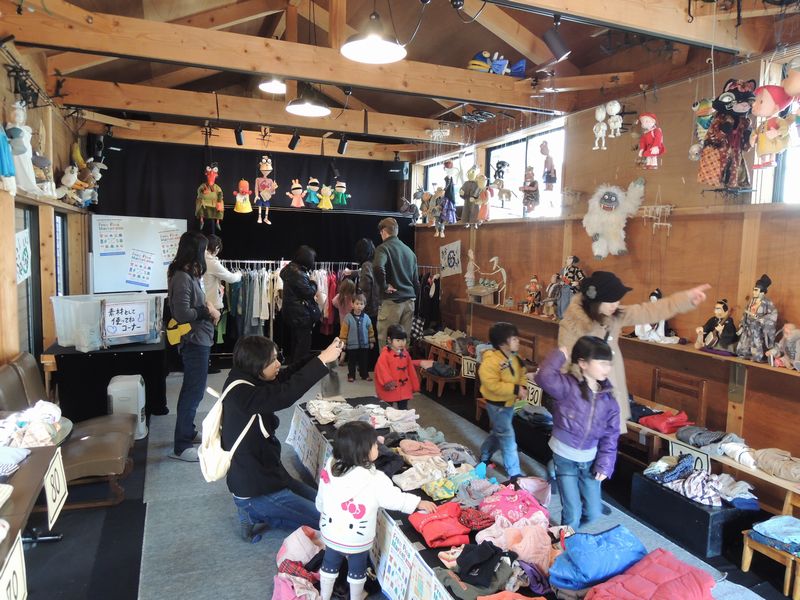
Event Aims
・Everyone participates on their own initiative
・extraordinary situation which reminds you of the atmosphere
・Full of communication
Japanese people are usually reserved about speaking with those they don’t know.
These “Free Flea” events encourage everyone to open up to each other, be friendly, and chat a little.
People who enjoy the event concept a lot are likely to take some clothes away to gift somebody else,
instead of just letting them be thrown away.
Or perhaps afterwards they’ll make something new by “upcycling” clothes they trade
or don’t need anymore. It a great chance to re-use, repair, and re-cycle.
Many people who have participated in past events carry this renewed sense of exchange
and gifting of pre-loved items into their daily lives.
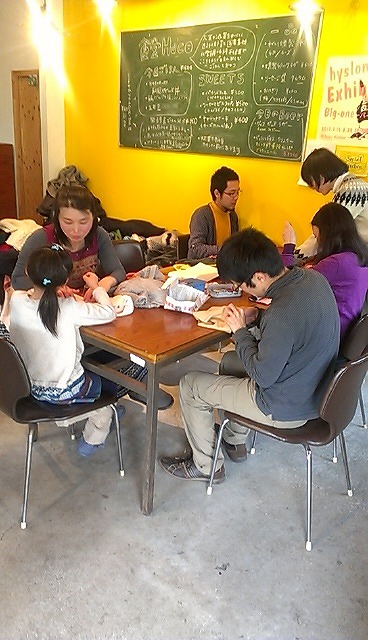
How did the “Free Flea” project evolve?
・The “Free Flea Market” has been held in some great Kyoto spaces in Muromachi are such as:
– Atelier Minomushi, The String Puppet Theater
– Social Kitchen, 21st Century Social & Cultural center
– Impact Hub Kyoto, The space for Social Entrepreneurs
– HINAYA Kyoto, a textile-dyeing factory with a long history
・There is an advisor of the Kyoto municipal town development project. He introduced us to each other.
・There is Mr.Oda who is a flexible president of residents’ association.
memo
The first Free Flea Market was held on 14-19th Jan 2011 at downtown in Kyoto.
It was a collaboration between Hinodeya Institute, Kyoto City Council
and the Art Complex1928 Building. Even though it snowed sometimes,
this event was so popular that there were people queuing in a huge line outside,
waiting for their chance to participate.
About 1800 people came.This was supposed to be a “seed event” to inspire people
to do more of the same by themselves.
But by public demand, it has actually become the first of many events of it’s kind
to happen in various places.
We had several round table meetings
– A coordinator from Hinodeya institute of ecological lifestyle
– A president of residents’association, Mr. Oda
– An adviser of Kyoto municipal town development projects
– Staff from Impact Hub Kyoto
– Staff from Social Kitchen
– A designer
– A puppet master from Atelier Minomushi
– A president and a staff from textile dyeing factory HINAYA
– An Art university student
– Some public officer from the waste section and the department of Stop Global Warming
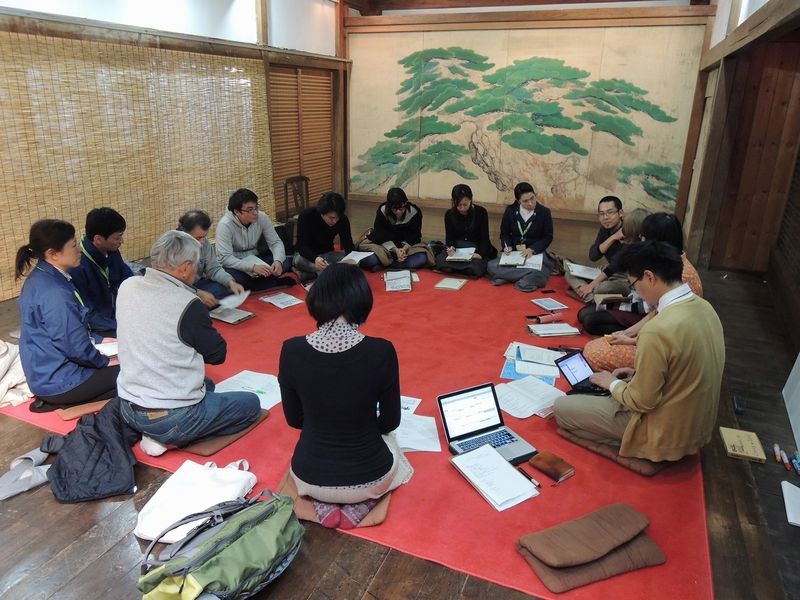
Spin-off Projects
Since the Free Flea Market event at the HINAYA Kyoto factory,
this company continues it’s efforts with an ongoing project called “Re:”
The Muromachi Community has received a second subsidy enabling it to hold some
“Repair Remake” workshops, including:
– Sandals woven from strips of Kimono fabric
– Kintsugi – repair of broken plates, bowls and cups
– Weaving with cardboard and thick papers